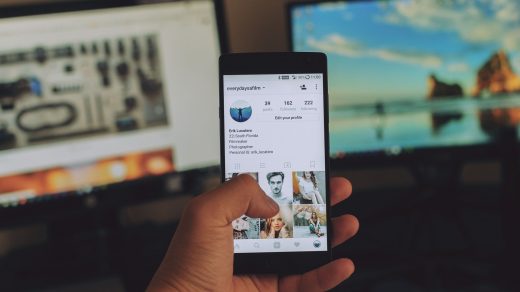One of my favorite things to do (and what used to serve as a way for me to practice my Dutch) is to watch the news program Zondag met Lubach. Hosted by Arjen Lubach, Dutch comedian and TV presenter, the weekly show covers the most popular topics in a funny and interesting way. I recently watched his video on “De online fabeltjesfuik”, or “the online trap of tales”, Lubach discusses the crazy conspiracies being spread about the Dutch political figures and the coronavirus. In the video, he explains how conspiracies are spread so rapidly through the use of algorithms in various media such as YouTube and Facebook.
If you have seen the Dutch news lately, you have probably seen protesters threatening and shouting at various important Dutch political figures. It has become so dangerous for these politicians that they now have to be escorted out of their workplaces. News reporters have also been using protection due to several threats. And the reason why they need all of this protection is due to the fact that protesters are claiming that all elite figures in this world (especially political figures) are blood-sucking satanist pedophiles. Wait, what? So oddly specific, and so extreme that to the average person (me included), these claims do not even seem to make sense. Yet, people are so convinced of these stories that it leads them to violence. So many people believe that the reality we live in is constructed by the government and it is all a hoax. I did not believe or understand how people could be so convinced that the coronavirus isn’t real (made up by the government or Bill Gates), or that when the coronavirus vaccine is finished and will be used that the government will be injecting a chip into you at the same time. Some even believe that the concepts of ‘conspiracy’ and ‘conspirator’ are a conspiracy in itself and that these terms were made up by the CIA in order to control the minds of the public. Lubach’s video helped me to understand why this happens through a clear step-by-step outline on how people are sucked into these theories.
1. It starts with a critique
It all begins when the person has a critique of a certain situation. They may search for this topic in some kind of media, such as YouTube for example.
2. Finding conspiracies
Once their search is complete, a person will already be able to find conspiracies about their topic online.
3. Belief
After watching these conspiracy videos, they will start to believe that the media constructs our reality and that everything we are told is ‘fake news’, basically.
4. The cruciality of algorithms
This is the most important step. Once the individual has begun with one conspiracy video, the algorithms of social media facilitate the continuation of watching more and more videos, allowing the person to find more and more conspiracies. People love a good shocking story, and it is the goal of the algorithms of social media to keep you watching for as long as possible. Therefore, we are fed more related content that keeps us in this loop of media consumption. Fake news is spread like wildfire, and conspiracies are viewed and believed by millions. People believe that they are choosing what they are watching, but in reality, that is the algorithm doing its job. People are sucked deeper and deeper into these ‘rabbit holes’ of conspiracies, making them believe that they are seeing the whole picture. This results in them forming their own/becoming part of an alternate reality; forming groups and communities of conspirators and spreading misinformation.
This is why there are people who believe Trump is a good person, or that the Dutch government officials are all pedophiles. The difficulty here is that I would not even know where to begin on how to fix these issues. Everyone has the right to freedom of speech, yet this spread of lies and hate is extremely dangerous and can lead to violence and terrorism. I think that the algorithm is something that is overlooked and needs more careful consideration, especially in relation to politics and the wellbeing of the world. My takeaway (and I hope it is yours too) is to be very careful with what I believe, and always be critical when receiving information about any topic. Do your own research. Don’t believe what people on Facebook are telling you. And be careful of fake news!!!



Recent Comments